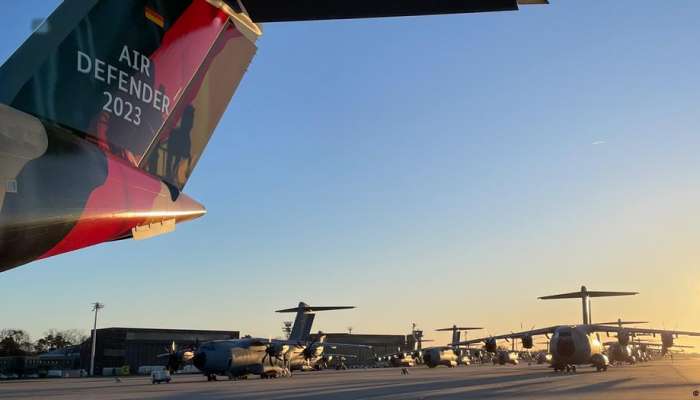
Berlin: Germany is set to host NATO's largest air force deployment over Europe in the alliance's history, officials said on Wednesday.
The Air Defender 23 exercise is scheduled to start on Monday. It will involve 10,000 participants and 250 aircraft from 25 countries.
The drills are designed to simulate a response to an attack on a NATO member country.
The US will send 100 aircraft and 2,000 personnel to take part in the exercise.
"We are showing that NATO territory is our red line, that we are prepared to defend every centimeter of this territory," German Air Force Lieutenant General Ingo Gerhartz said.
But the senior German commander insisted that the exercise was designed to show a "defensive" posture towards Russia.
"But we won't, for example, conduct any flights toward Kaliningrad. So this is intended to be defensive," he said.
US Ambassador to Germany Amy Gutmann said that the drills will constitute an "impressive" show of force towards other countries in the world.
"This is an exercise that would be absolutely impressive to anybody who's watching, and we don't make anybody watch it," the US official told reporters in Berlin.
"It will demonstrate beyond a shadow of a doubt the agility and the swiftness of our allied force in NATO as a first responder," she said.
"I would be pretty surprised if any world leader was not taking note of what this shows in terms of the spirit of this alliance, which means the strength of this alliance," she declared. "And that includes (Russian President Vladimir) Putin."
Gerhartz said at a press conference on Wednesday that the drills would only have a minor impact on civilian air traffic.
"It will be in the range of minutes at the most," the German air force commander said.
US National Guard director Michael Loh echoed the comments, saying that disruption is expected to be minimal.
But the German air traffic controller's union GdF has argued that the drills could have a "massive impact."
"The military exercise Air Defender will of course have a massive impact on the flow of civil aviation," GdF chairman Matthias Maas told the German Press Agency.
Maas cited figures by the air traffic control organization Eurocontrol, which calculated up to 50,000 delay minutes per maneuver day.